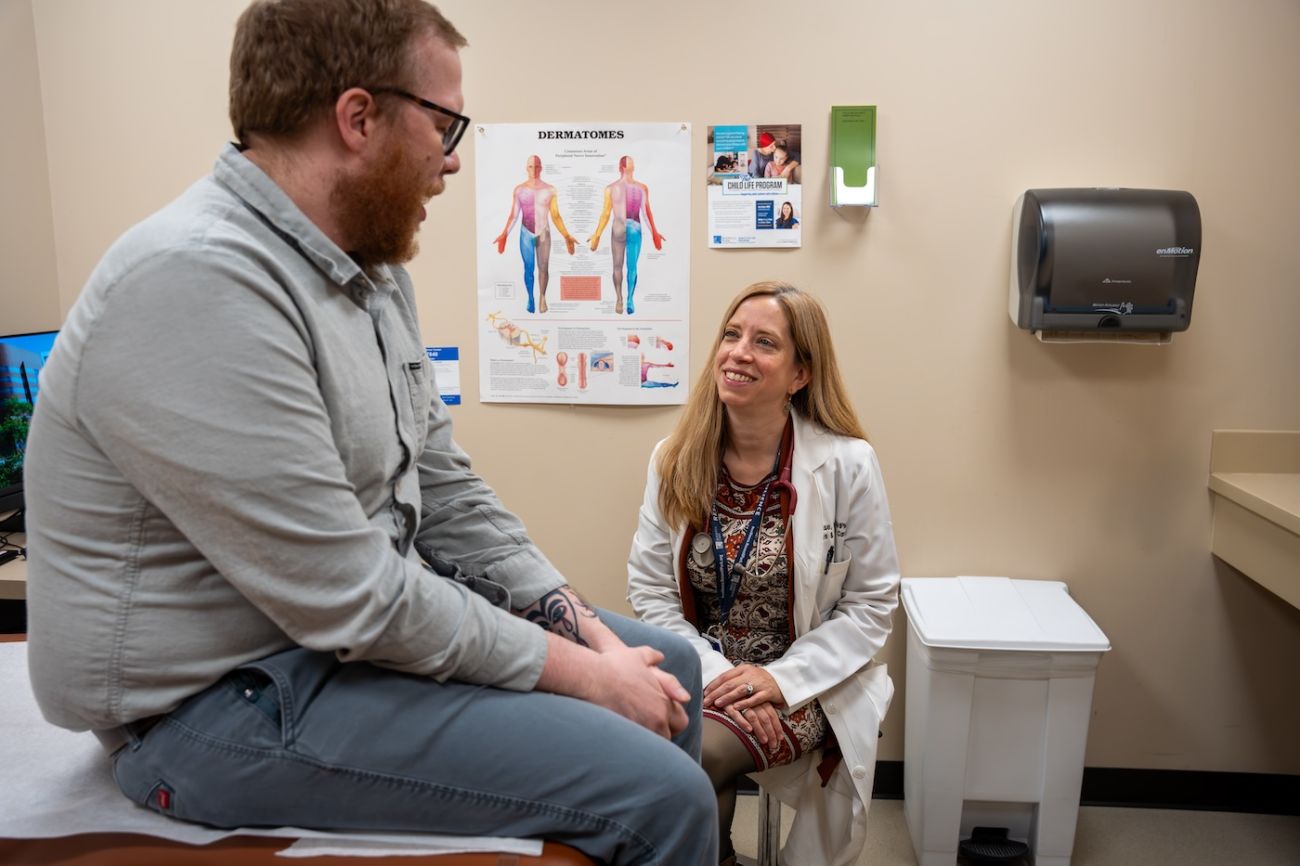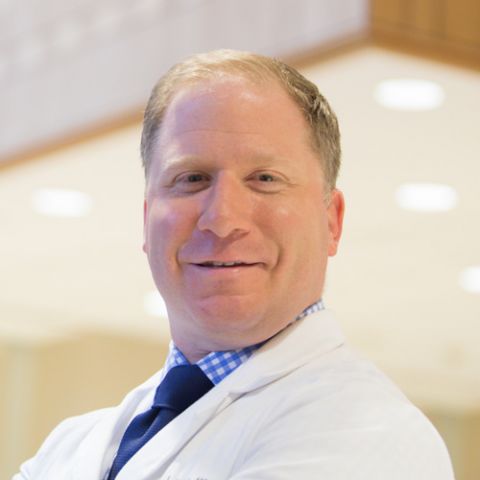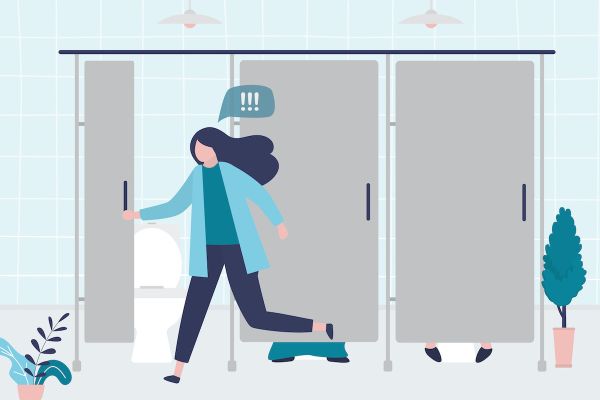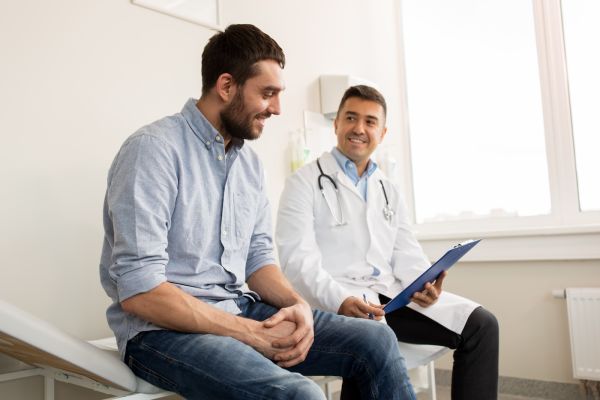Meeting the unique challenges that may occur with colorectal cancer.
Cancer can turn your world upside down – and having colorectal cancer may be especially trying, as it affects some of the most basic body functions, including bowel and bladder routines, nutrition and food intake, emotions, fertility and more. "In addition to novel surgical and medical treatments such as minimally invasive robotic surgery and the latest drugs, Roswell Park Comprehensive Cancer Center integrates a full array of support services to address the unique physical, practical and emotional challenges of patients with colorectal cancer,” says Steven Nurkin, MD, MS, FACS and Chief of Colorectal Surgery at Roswell Park.
Support services from diagnosis to survivorship
One of the first support services the colorectal cancer care team recommends to all colorectal cancer patients is a visit to The 11 Day Power Play Cancer Resource Center (on the first floor of our main campus, just outside the tower elevators). “This is an excellent place for patients with any type of cancer to learn about many of the ways we can help them,” says Dr. Nurkin. “These include orientation sessions on chemotherapy and infusion, comfort care kits, wig and hair coverings at our on-site Elevate styling salon, pain and stress relief such as meditation, mindfulness, electrocranial therapy, acupuncture, oncology massages, access to social workers and cancer coaches, or guidance and someone to talk to in a private and safe space at any point in their cancer journey.”
A cancer coach in your corner
Many colorectal cancer patients have found the Cancer Coach program to be helpful throughout all phases of their treatment, but especially as they begin treatment, explains Dr. Nurkin. Cancer coaches are trained Roswell Park volunteers who provide comfort and practical information for patients. “While our clinical staff is great at helping patients navigate the challenges of cancer, patients tell us they also really benefit from talking with a person who has lived through this type of cancer and treatment, who can offer practical tips and other information they learned along the way.” The Cancer Coach program is free and our coordinators help match patients to coaches with similar diagnoses and shared interests, cultural/religious backgrounds, and basic demographic information.
Services geared toward young adults
“As rates of colorectal cancer among younger adults increase, the specialized services we offer for young adults in their 20s and 30s are more important than ever,” says Dr. Nurkin. “Colorectal cancers diagnosed in younger adults tend to be different in their biology, pathology, genetics and other features that make treatment and cure more challenging.
“At Roswell Park, medical oncologist Deepak Vadehra, DO, specializes in researching and treating colorectal cancer in the young adult population. As part of our multidisciplinary care, the care team coordinates services that specifically meet the special needs of young adult colorectal patients at every stage of their treatment,” says Dr. Nurkin. These services include social support and networking, a sexual health clinic, a survivorship program to manage long-term medical care, financial counseling and more.
We are here for you
A cancer diagnosis can be a difficult and overwhelming experience for patients and their caregivers. We want you to know that we are here to help.
Fertility preservation for colorectal cancer
Many young adult patients worry about how radiation, surgery and drugs used in colorectal cancer treatment and many other types of cancer may affect their ability to have children in the future. "Before treatment even starts, we refer patients with questions about fertility-saving options to our Oncofertility Program. For patients who decide to pursue fertility preservation options, our team works with our surgeons and oncologists to help coordinate the timeline for fertility-sparing steps that need to be taken, such as sperm, ovary or embryo banking, before certain types of cancer treatment begin," says Dr. Nurkin.
Nutrition and dietary guidance
“When your colon is compromised, it’s likely that you will need to make adjustments in your dietary routines, to maintain optimal health,” says Dr. Nurkin. “Our on-site certified dietitians are an important part of cancer care for patients with colon and rectal cancer. All of our dietitians have advanced training and experience in working with cancer patients. They can assess your personal nutrient needs before, during and after your cancer treatment. They will explain the diet therapy prescribed by your doctor and connect you to reliable sources of nutrition information. They can also help patients identify substances that trigger or reduce incontinence, bloating, nausea, loss of appetite and other common side effects of cancer treatment.”
Treatment for incontinence
Because colorectal surgery and radiation can affect the nerves and muscles that regulate bladder and bowel control, Roswell Park’s care team includes a pelvic floor rehabilitation specialist. Additionally, Roswell Park colorectal surgeon Anthony Dakwar, MD, FACS, is one of only a few local practitioners trained in implantation of a small sacral nerve stimulation device that can treat incontinence. The device sends electrical signals to the nerves and muscles in the pelvic area, including the pelvic floor, urethral sphincters and bladder sphincters, which alert the brain to sensations of fullness of the bladder or rectum. “One of our patients recently described the sacral nerve stimulation device as life-changing, offering a 90% improvement in her quality of life,” says Dr. Nurkin.
Experts in pain relief, supportive and palliative care
“Guided by Amy Case, MD, FAAHPM, Roswell Park is renowned for its groundbreaking work in pain management and supportive care, with programs that encompass psychiatry, psychology, social work, spiritual care, geriatrics and bioethics,” says Dr. Nurkin. “Dr. Case is nationally recognized as an expert in use of cannabis (medical marijuana) and other medical interventions to address cancer pain, nausea and poor appetite.”
These interventions may include cranial electrotherapy stimulation, a drug-free option that uses a small TENS-like unit to stimulate neurons in the brain to increase serotonin levels to treat anxiety, depression and insomnia with no lasting side effects, no risk of addiction, and no danger of interaction with medication. Integrative care, such as acupuncture, massage therapy, meditation, biofeedback, touch therapy, relaxation training and physical therapy may also be used to treat symptoms. Again, all of these services are offered on-site at Roswell Park."
For referrals to any of the services noted above during your cancer journey, consult your Roswell Park care team, or call 1-800-ROSWELL (1-800-767-9355).




